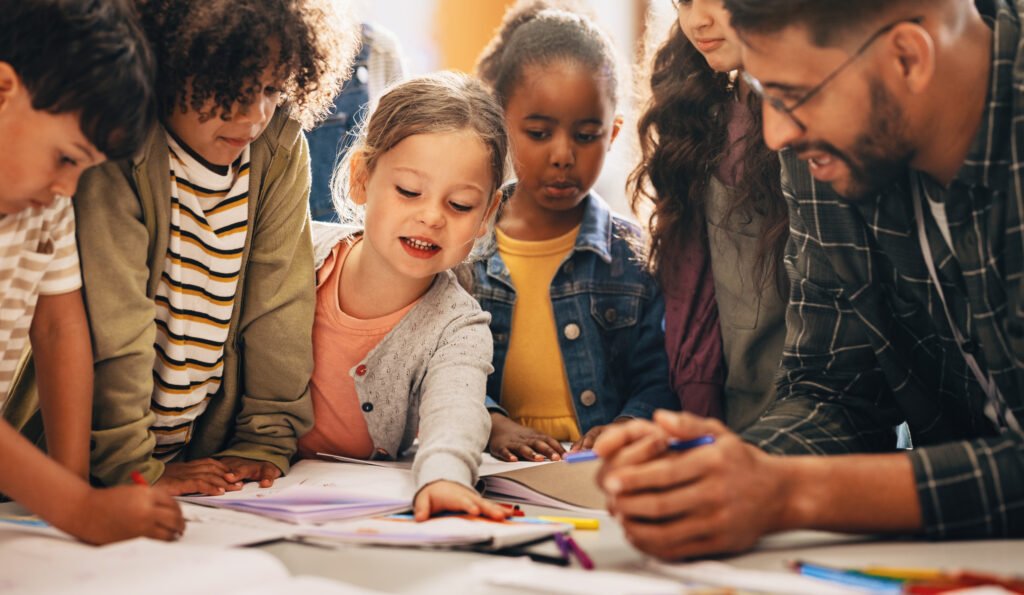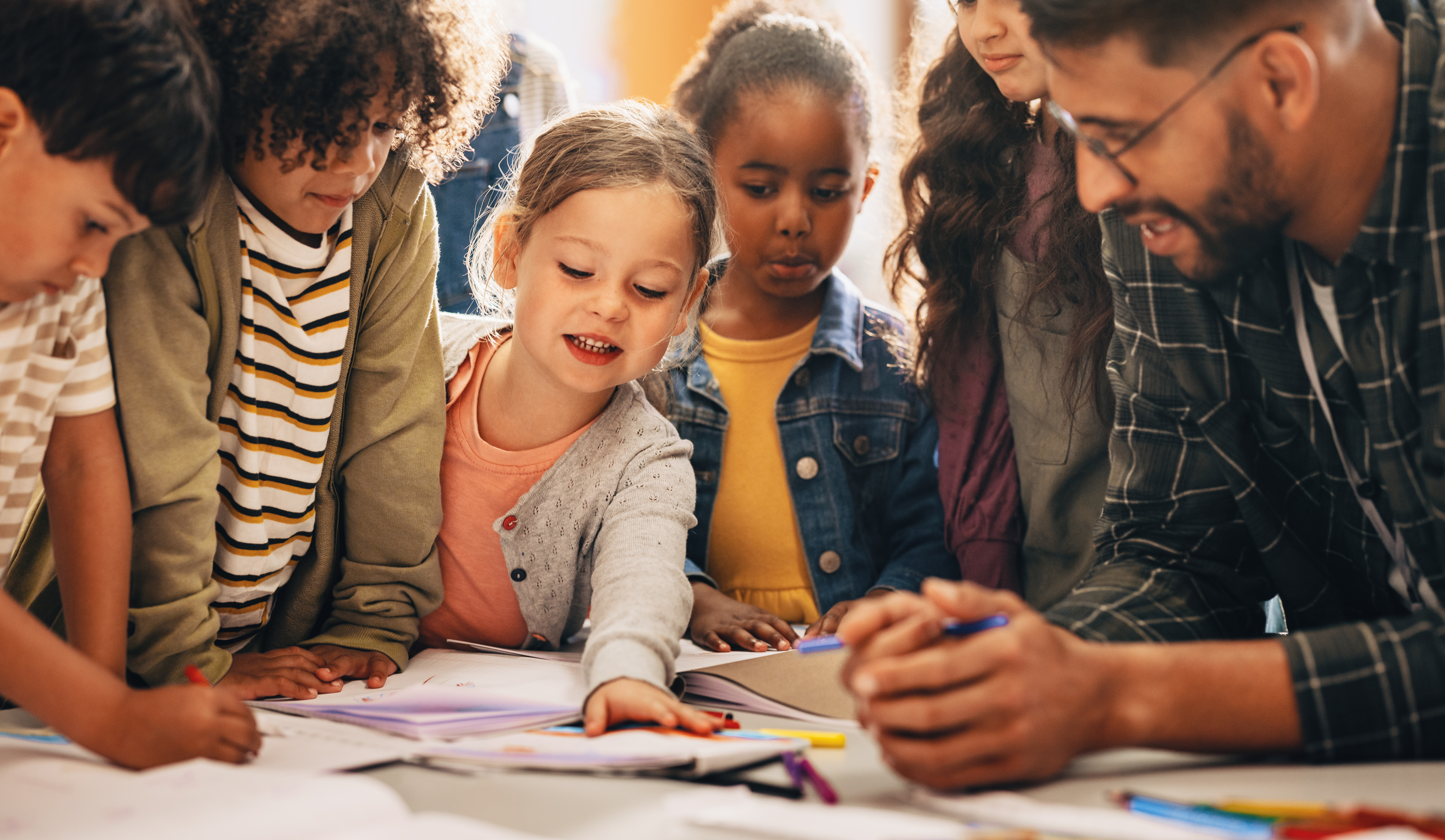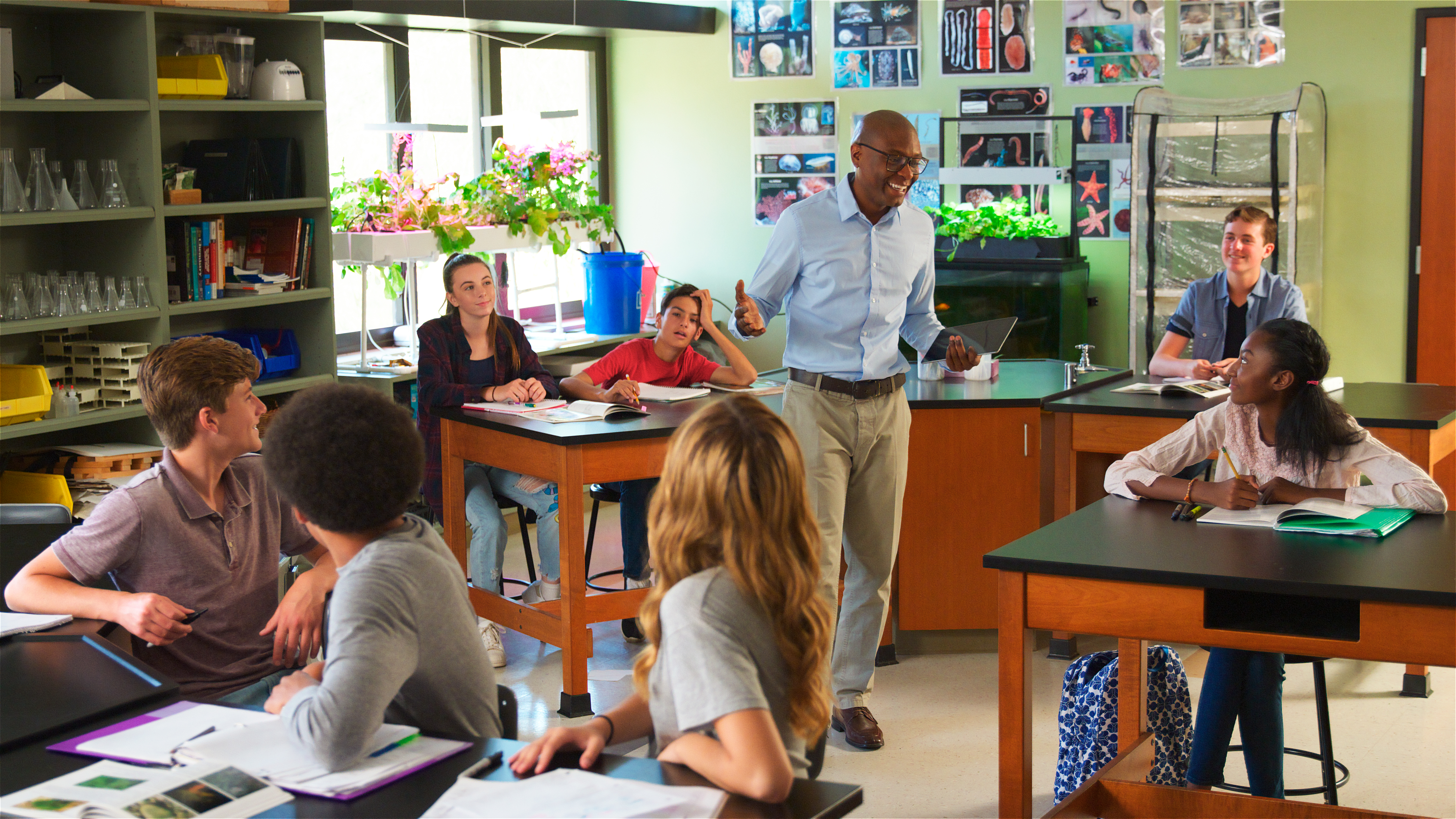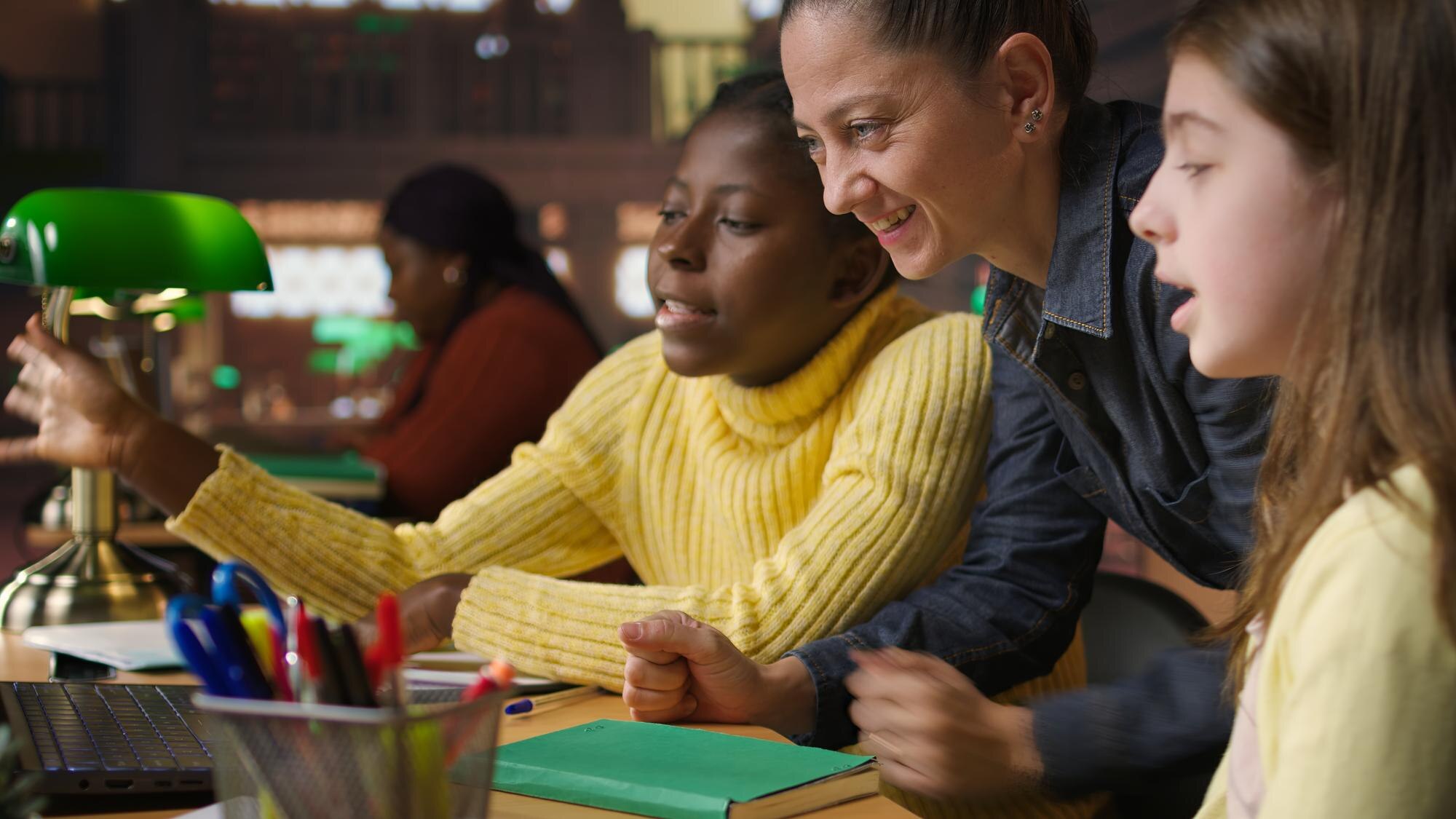
Students doing a creativity project with their teacher in a classroom. Group of primary school children learning how to draw and colour with the help of their educator.
Empowering Gifted Students: Strategies to Foster Resilience and Confidence
Gifted students often juggle high expectations with emotional challenges. You might wonder how to guide them toward resilience and confidence without overwhelming them. This journey doesn’t have to be daunting. By tapping into practical strategies, you can nurture their emotional growth alongside academic success. Discover how empowering these young minds can transform not just their education, but their entire outlook on life. Let’s explore ways to support their unique needs and strengths. Ready to make a difference in their lives? Learn more about resilience strategies here.## Building Resilience in Gifted Students

Cultivating resilience in gifted students is essential for their emotional and academic success. Resilience enables them to navigate challenges with strength and adaptability. Let’s delve into techniques that provide essential emotional support and create nurturing learning environments.
Emotional Support Techniques
Emotional support is crucial for gifted students who often grapple with intense feelings. Providing empathetic listening can help them process emotions effectively. Encourage open discussions, allowing students to express their feelings without fear of judgment. Connecting them with peers facing similar challenges can also foster a sense of belonging and understanding.
Listen Actively: Pay attention to what students are saying and validate their feelings.
Encourage Expression: Facilitate activities like journaling or art that allow students to articulate emotions.
Connect with Peers: Organize group sessions for students to share experiences and support each other.
Real-world examples show that schools implementing emotional support systems see improvements in student well-being and academic performance. According to Gifted Challenges, fostering emotional resilience can lead to higher academic achievements.
Creating Safe Learning Environments
A safe learning environment is essential for gifted students to explore their potential. It involves creating spaces where they feel physically and emotionally secure. Classrooms should encourage risk-taking and celebrate mistakes as learning opportunities.
To establish this environment:
Promote Inclusivity: Ensure that all students feel valued and respected.
Encourage Curiosity: Create a culture where asking questions is welcomed and encouraged.
Celebrate Diversity: Recognize and honor the unique talents and backgrounds of each student.
Research suggests that students thrive in environments that are supportive and inclusive. According to the ESC of Central Ohio, fostering such environments can significantly enhance gifted students’ learning experiences.
Confidence Building Strategies

Confidence is key to unlocking a gifted student’s potential. By fostering a sense of self-assurance, educators can empower students to pursue their passions and tackle challenges with conviction. Here, we’ll look at encouraging self-expression and celebrating small victories.
Encouraging Self-Expression
Self-expression is vital for gifted students to develop confidence. Encourage students to explore various forms of expression, whether through writing, art, or public speaking. This not only builds self-esteem but also helps them communicate their unique perspectives.
Diverse Mediums: Offer different platforms like debates, art classes, and writing workshops.
Feedback Culture: Provide constructive feedback to help students refine their skills.
Public Speaking: Create opportunities for students to present their ideas to peers and teachers.
Incorporating self-expression in the classroom can lead to increased confidence and a willingness to tackle new challenges. Genie Academy emphasizes the importance of self-expression in nurturing gifted students’ confidence.
Celebrating Small Wins
Celebrating small achievements is crucial in building confidence. Recognize and reward progress, no matter how minor, to motivate students and reinforce their efforts.
Recognition: Acknowledge achievements with personalized notes or small rewards.
Reflection: Encourage students to reflect on their progress and set future goals.
Positive Reinforcement: Use praise to reinforce positive behaviors and encourage ongoing effort.
Research shows that frequent recognition of achievements leads to increased motivation and self-esteem. NAGC highlights that celebrating small wins can greatly influence a student’s confidence and overall development.
Educator Tips for Gifted Education

Educators play a pivotal role in supporting gifted students. By adopting effective strategies, they can facilitate a nurturing and enriching educational experience. Let’s explore personalized learning plans and effective communication skills.
Personalized Learning Plans
Personalized learning plans cater to the individual needs of gifted students. These plans help tailor education to match each student’s strengths and areas for growth, providing a more engaging learning experience.
Assess Strengths and Needs: Evaluate the student’s unique abilities and interests.
Set Goals: Develop clear, achievable goals that challenge and motivate the student.
Monitor Progress: Regularly review and adjust the plan to ensure continued growth.
Personalized learning plans empower students to take ownership of their education. Gifted Challenges highlights their effectiveness in maximizing student potential.
Effective Communication Skills
Developing effective communication skills is crucial for educators to connect with gifted students. Clear and empathetic communication can bridge gaps and foster understanding.
Active Listening: Engage with students by listening attentively and responding thoughtfully.
Feedback: Provide constructive feedback that encourages growth and learning.
Open Dialogue: Foster an environment where students feel comfortable discussing their ideas and concerns.
By honing communication skills, educators can build trusting relationships with their students. Genie Academy stresses that effective communication is key to successful gifted education.
Explore our workshops and resources to implement these strategies in your classroom today! 🎓

A certified Heal Your Life® Coach with 20+ years in education and emotional development. Supports gifted teens in navigating anxiety, perfectionism, and identity challenges, while equipping parents with practical tools for lasting transformation. Sessions blend emotional healing, mindset mastery, and strategic empowerment.



